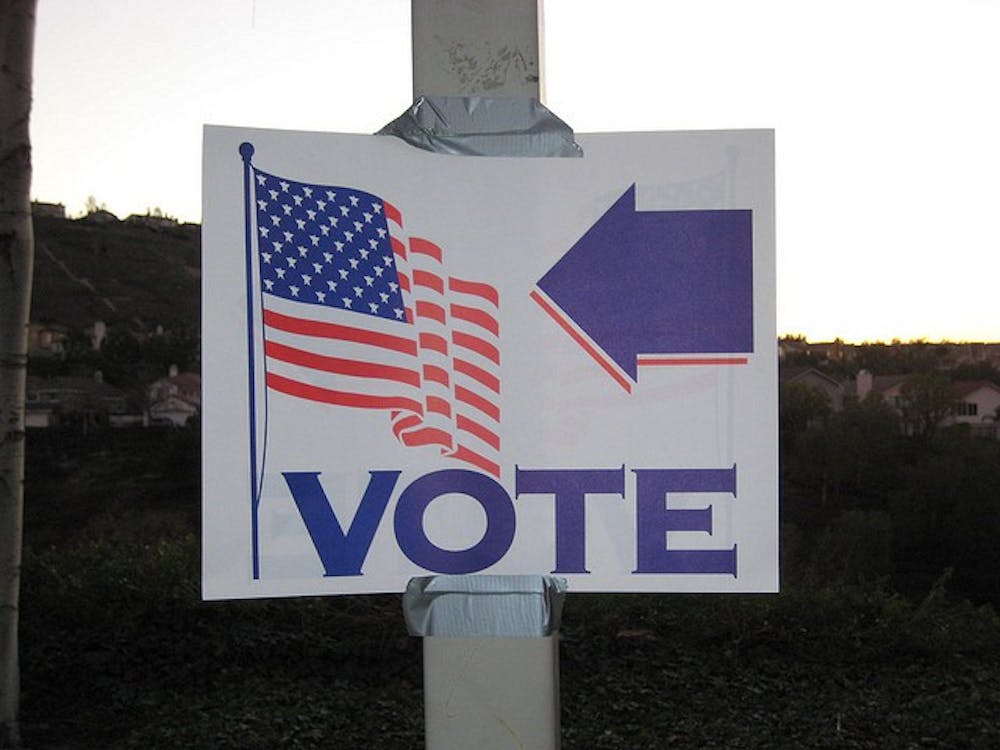From the Newsstands: This story appeared in The Eagle's April 2024 print edition. You can find the digital version here.
With the 2024 presidential election looming, many students feel conflicted. While some are excited to be at the center of the action in D.C., others dread the impact it might have on their mental health.
“I would say I get stressed,” said Emma Kirby, a senior in the School of Public Affairs.
According to a survey by the American Psychological Association, consuming politics daily can negatively affect mental health, particularly during an election season. After the 2020 presidential election, the University of Nevada, Reno, found that self-reported anxiety and depression levels peaked in November.
With yet another possible election between President Joe Biden and former President Donald Trump, such symptoms take hold again. As hubs of political zeal, college campuses are especially afflicted.
According to an American University Sine Institute survey of 1,568 Americans aged 18-34, 30 percent of participants said they’re not motivated to vote and 20 percent said they are only somewhat motivated leading up to the 2024 election.
But not all students feel as apathetic. Daniel Domsky, a sophomore in the Kogod School of Business and the School of International Service said, “I think it’s really exciting being in D.C. during an election.”
Katherine Greenstein, a senior in SPA, has worked in politics since high school. To alleviate their nerves, they worked for two different campaigns this cycle: one in California and one in their home state of Missouri.
Although campaigns can be stressful, Greenstein enjoys the fast pace, characterizing it as “high risk, high reward.”
“The worst part of campaigns for my mental health is when you lose,” Greenstein said but added that this only motivates them to work harder.
Research shows that civic engagement, such as working on a campaign, can positively impact mental health. The U.S. Department of Health and Human Services Office of Disease Prevention and Health Promotion found that civic participation improves health and well-being.
Jeffrey Volkmann, the executive director for AU’s Center of Wellbeing and Psychological Services, recognizes the positive impact of involvement but still urges students to be mindful of a balance.
“It’s about finding that line of activism and civic engagement, but also not putting yourself in a position where you’re overwhelmed,” Volkmann said.
The Voters of AU club also operate under these principles. The club works to alleviate confusion around the voting process by holding meetings and voter registration drives. Alyssa Levin, a junior in SPA and the president of Voters of AU, discussed the club’s impact.
“I think making voting fun is such an important thing,” said Levin.
The club works to be a supportive community for students. In an election year, “without an outlet, it starts to feel very overwhelming,” said Alli Templeton, a sophomore in SPA and the club’s internal outreach director.
Voters of AU emphasizes the importance of voting for mental health and the greater good.
“At AU, the undergrad population is like 8,000 people. There have been elections set by much less than that,” Levin said. “So anyone that’s feeling helpless about it, their voice matters.”
This article was edited by Samantha Skolnick, Abigail Turner and Abigail Pritchard. Copy editing done by Luna Jinks, Isabelle Kravis, Romy Hermans and Ariana Kavoossi..





